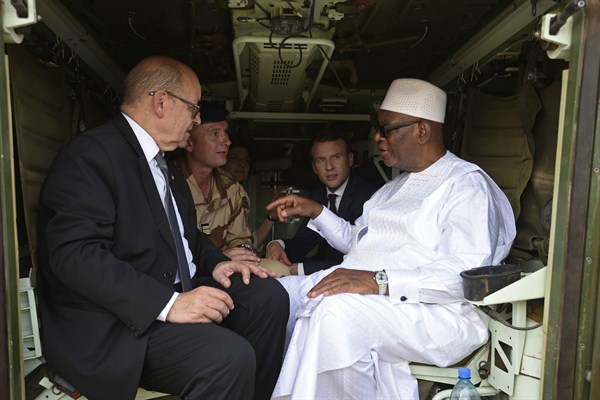Mali’s capital, Bamako, experienced two disruptions last weekend: a protest against a proposed constitutional referendum on Saturday, followed by a terrorist attack on Sunday.
The attack, claimed by the extremist alliance Nusrat al-Islam wal Muslimeen, killed five people at a resort on the city’s outskirts and, naturally, grabbed international headlines. But the protest, and the events that gave rise to it, reveal more about how the country is being governed and the challenges it faces two years after the signing of a landmark peace deal.
For weeks, frustration has been growing with President Ibrahim Boubacar Keita’s determination to hold the referendum on proposed constitutional amendments that would create a Senate, with the president in charge of appointing one-third of its members, as well as allow the president to name the head of the Constitutional Court, which ratifies election results. The vote had been scheduled for July 9, but the government announced yesterday it would be pushed back “to a future date.”

